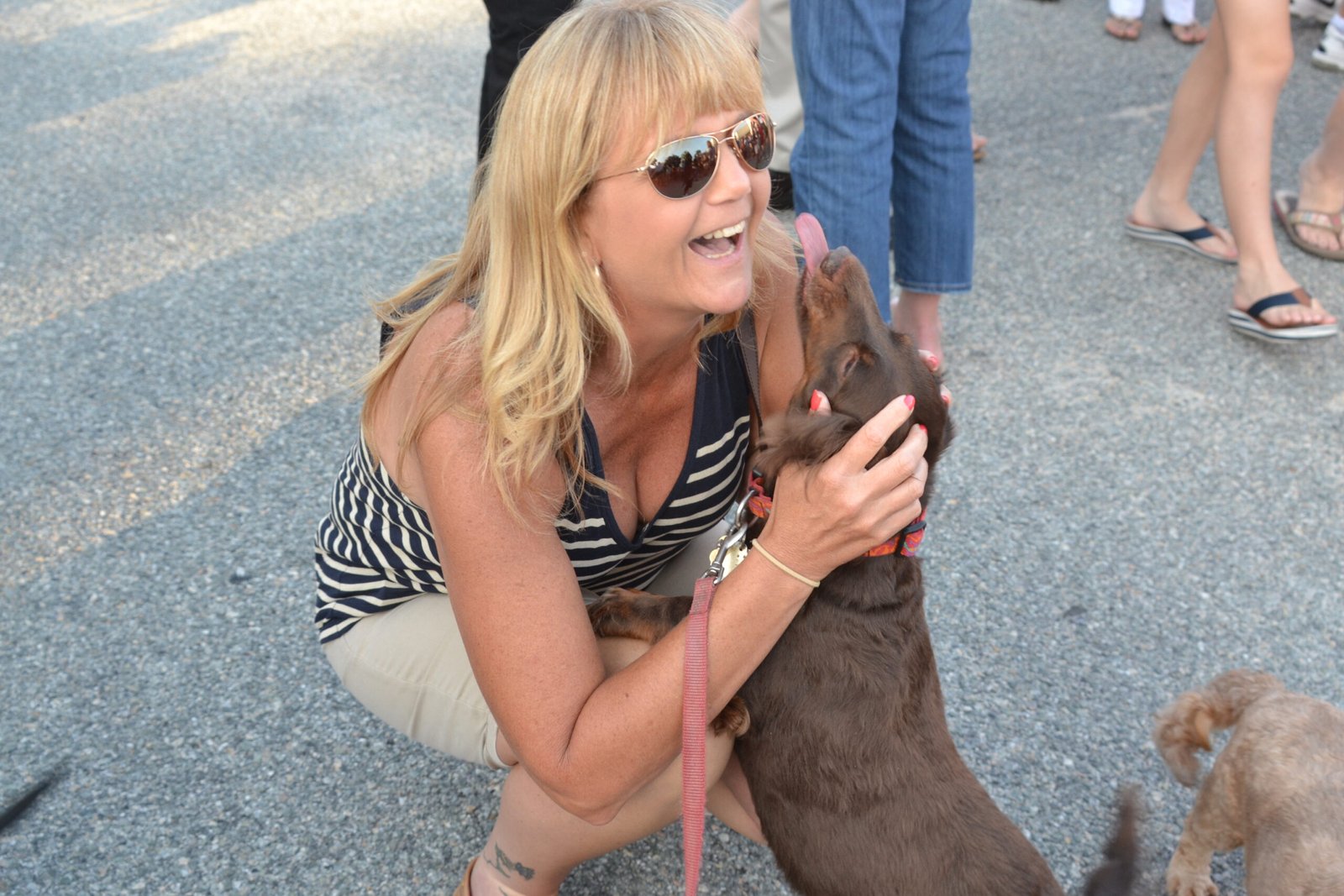Isn’t it incredible how our four-legged friends seem to sense when something’s just not right? There’s a certain magic in the way dogs tune in to our moods, especially when we’re under the weather. If you’ve ever found your pup acting a bit differently when you’re sick, you’re not imagining things. Dogs have an uncanny ability to read us like a book, and their responses are nothing short of heartwarming. Let’s dive into the touching ways dogs show they understand when you aren’t feeling your best.
They Refuse to Leave Your Side

When you’re feeling unwell, your dog’s loyalty shines like a beacon. Many pups will stick to you like glue, following you from room to room, even if you’re just shuffling between the couch and bed. It’s their silent way of saying, “I’m here for you.” This steadfast companionship can be incredibly comforting, especially when you’re feeling vulnerable. You may notice your dog lying at your feet or even squeezing into bed with you, determined to be close no matter what. Their presence is a gentle reminder that you’re not alone. Dogs often sense our distress through subtle cues, and their instinct is to offer support, just like a close friend would.
They Gaze at You with Concern
There’s something deeply moving about the way a dog looks at you when you’re sick. Their eyes seem to soften, filled with empathy and worry. This isn’t just your imagination; dogs are masters at reading facial expressions and body language. When you’re feeling low, your dog might sit quietly, watching you with a furrowed brow or tilted head. It’s almost as if they’re trying to understand what’s wrong and how they can help. This intense eye contact can feel like a warm hug, letting you know your feelings are noticed and cared for. It’s one of the most genuine signs of their emotional intelligence.
They Bring You Their Favorite Toy
Some dogs are little caregivers in their own special way. If your pup drops their treasured squeaky toy or ragged teddy at your feet when you’re unwell, they’re not just looking for a game. Dogs often offer their favorite possessions as a form of comfort or to cheer you up. It’s their canine version of bringing you soup or a cozy blanket. This adorable gesture shows your dog is trying to make you feel better, even if they don’t fully grasp what’s wrong. It’s a sweet, selfless act that speaks volumes about their bond with you.
They Become Extra Gentle
You might notice your usually rambunctious dog suddenly acting softer around you when you’re ill. Jumping turns into careful snuggling, and wild play gives way to tender nuzzles. Dogs are surprisingly intuitive about our physical state, often adjusting their behavior to match our needs. It’s as if they know you’re fragile and they must handle you with care. This change can be especially noticeable in large or energetic breeds, who seem to switch gears and become mindful of your comfort. Their gentleness is a silent show of respect and love.
They Lick Your Hands or Face More Than Usual

Licking is one of the most natural ways dogs express concern or affection. When you’re not feeling well, your pup may give you extra kisses, focusing on your hands, face, or even the spot that hurts. Some experts believe dogs use licking to comfort you, much like a mother dog soothes her puppies. The sensation can be soothing and grounding, reminding you that someone cares deeply about your well-being. It’s also a way for dogs to gather more information about your health through scent and taste, as they can detect subtle changes in your skin or sweat.
They Act Out of Character
It’s not unusual for a dog to behave differently when their favorite person is sick. Some become clingy, while others might be unusually quiet or subdued. You might notice your dog pacing, whining, or acting restless. These shifts are signs they’re picking up on your discomfort and trying to process it in their own way. It can be both touching and surprising to see how attuned your dog is to your emotional and physical state. Their behavior changes are often a reflection of their concern, showing just how deeply they care.
They Try to Cuddle in Bed with You
If you find your dog squeezing into bed with you or curling up extra close during nap time, it’s no accident. Dogs instinctively want to offer warmth and comfort when someone is unwell. Their soft fur and steady breathing can be soothing, helping to ease aches and pains or calm frazzled nerves. Many dog owners find that their pets act like living hot water bottles, snuggling up to provide physical and emotional relief. This close contact is one of the purest ways dogs show they’re aware of your suffering and eager to help.
They Pay Extra Attention to the Affected Area
It’s almost uncanny how some dogs will nuzzle, sniff, or even paw gently at the part of your body that hurts. Whether it’s a headache, stomach ache, or a sore limb, dogs often seem to hone in on the problem spot. Their powerful noses can detect changes in your scent that signal illness or injury. This focused attention can feel both comforting and astonishing, as if your dog is trying to heal you with their presence. It’s a reminder of their unique abilities and their deep connection to your well-being.
They Get Protective
When you’re not at your best, your dog’s protective instincts may kick in. You might notice them barking at visitors, staying alert to unusual sounds, or even positioning themselves between you and others. This heightened vigilance is their way of guarding you when you’re vulnerable. It’s a touching display of devotion, showing that your dog takes their role as your protector seriously. Even the gentlest dogs can turn into fierce guardians when their favorite human is feeling down.
They Lose Interest in Their Own Needs

Some dogs seem to forget about their own routines when their owner is unwell. Walks, meals, and playtime may suddenly become less important to them. Instead, they prioritize hovering around you, keeping a watchful eye on your every move. This selflessness is a testament to the depth of their bond with you. It’s as if your well-being becomes their main concern, and they’ll do whatever it takes to make you feel better, even if it means missing out on their usual fun.
They Mimic Your Mood
Dogs are emotional sponges, soaking up the energy and mood of their owners. When you’re feeling low, your dog may mirror your sadness or fatigue by being quieter or less active. This empathy isn’t just a coincidence; dogs are wired to pick up on emotional cues and respond in kind. Their mood shifts are a subtle way of letting you know they’re right there with you, sharing in your ups and downs. It’s a silent but powerful form of companionship that many dog owners cherish.
They Whine or Vocalize Softly
If your dog starts whimpering, whining, or making soft, concerned noises when you’re sick, they’re likely trying to communicate their worry. These sounds can be their way of checking in, asking if you’re okay, or simply expressing their unease. It’s as if they’re saying, “I wish I could do something to help.” This vocal empathy can be both endearing and heartbreaking, a clear sign that your dog is deeply affected by your discomfort.
They Watch Over You While You Sleep
There’s something incredibly comforting about waking up to find your dog quietly watching over you. When you’re sick, many dogs will take on the role of silent guardian, staying close by as you rest. This watchfulness isn’t just about being near you; it’s a protective instinct, ensuring you’re safe while you’re at your most vulnerable. Their steady presence can make even the toughest sick days feel a little less lonely. It’s a simple but profound way dogs show their understanding and care.
They Stay Calm in Your Presence
Even the most excitable dogs can sense when it’s time to tone things down. When you’re unwell, your dog may become noticeably calmer, moving more slowly and quietly around you. This shift is their way of respecting your need for peace and rest. It’s amazing how quickly dogs can pick up on the need for quiet, adjusting their energy to match yours. This calming presence can help reduce stress and promote healing, making your dog a true partner in your recovery.
They Offer Silent Support
Sometimes, the most powerful support comes in silence. Your dog may simply sit beside you, no words or actions needed, just offering their steady presence. This quiet companionship can speak louder than any gesture. It’s as if your dog is saying, “I’m here, no matter what.” Their ability to comfort without words is one of the most remarkable gifts they offer. In moments of illness or sadness, this silent support can be the anchor that keeps you grounded.
The next time you’re feeling unwell and notice your dog behaving differently, remember these heartwarming signs. Their empathy and loyalty are more than just instinct—they’re a beautiful reflection of the incredible bond you share. Isn’t it amazing how deeply our dogs understand us?

Andrew Alpin from India is the Brand Manager of Doggo digest. Andrew is an experienced content specialist and social media manager with a passion for writing. His forte includes health and wellness, Travel, Animals, and Nature. A nature nomad, Andrew is obsessed with mountains and loves high-altitude trekking. He has been on several Himalayan treks in India including the Everest Base Camp in Nepal.





